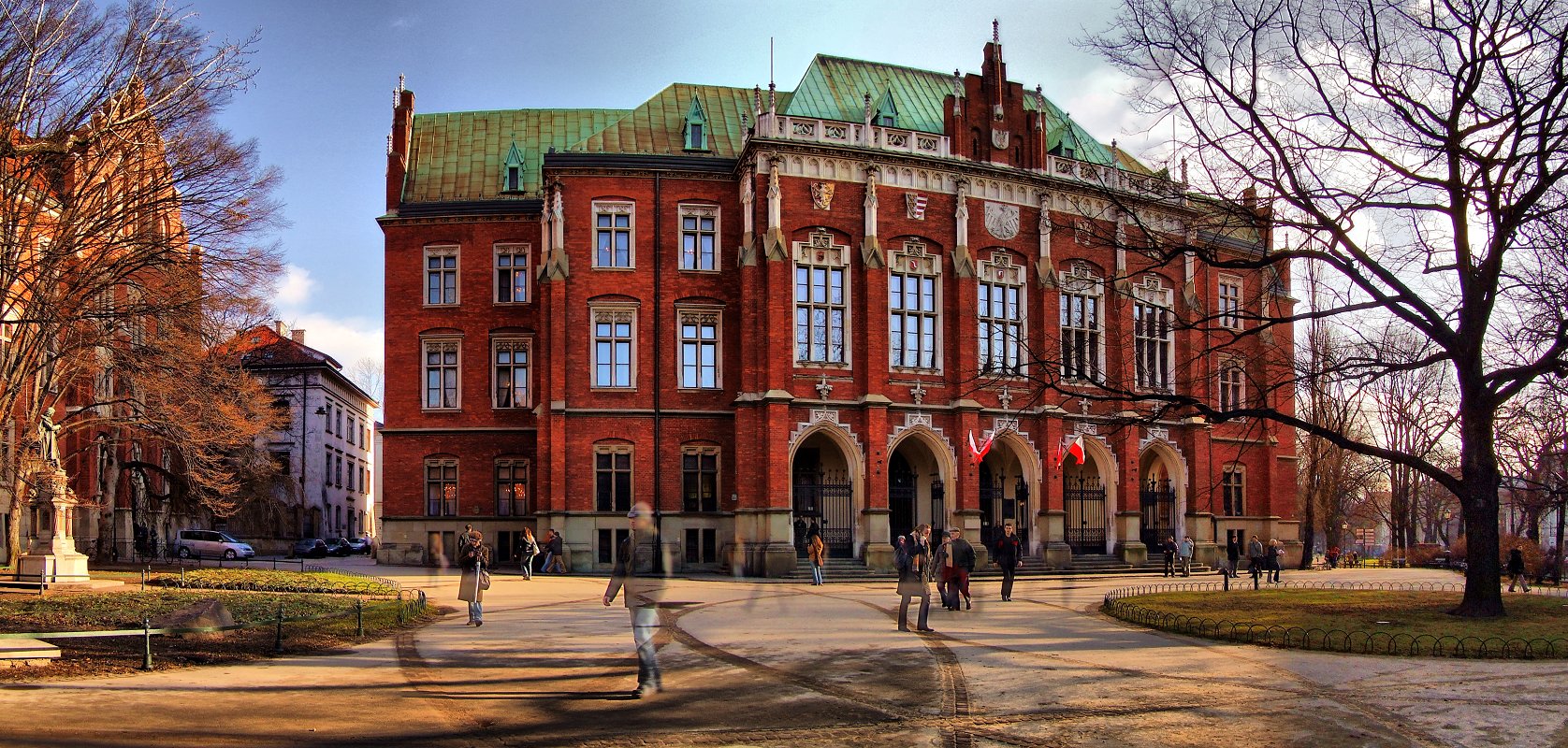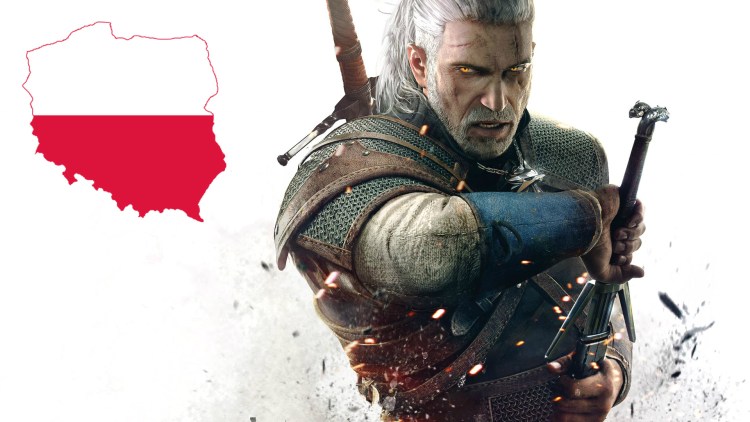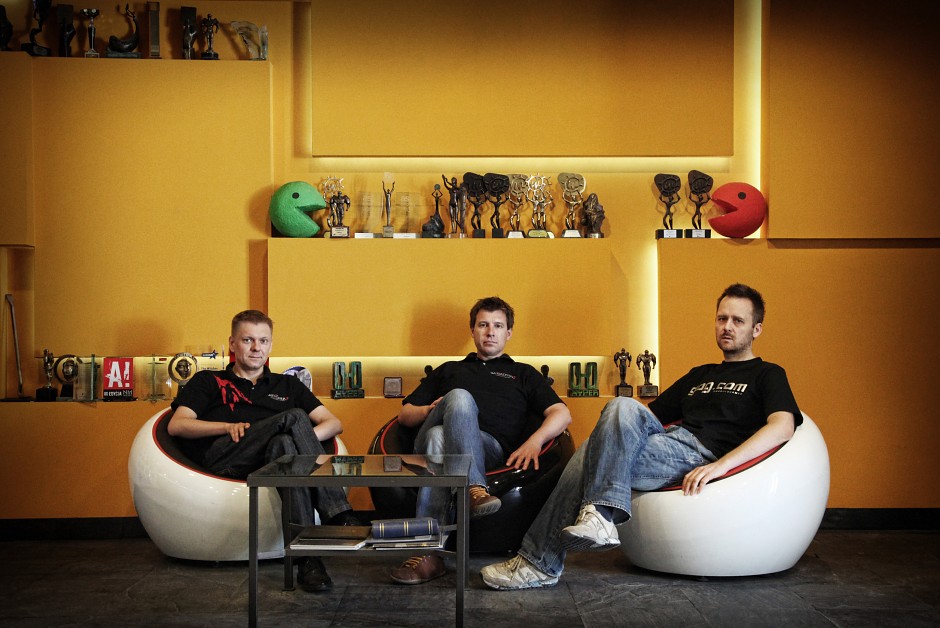The role of government
The push for more game-design courses in universities is an example of the Polish government taking more interest in the growth of the industry. It’s taken a while to get their attention, though. “They usually wake up quite late,” said Krzysztof Kalinowski, a lecturer at Warsaw’s Polish-Japanese Institute of Information Technology.
“This was the first place to get a diploma in games,” said Kalinowski. “I was the first one developing that [course]. For the first few years we had a lot of visits from the professors of universities, asking us, ‘Why play? That’s a university — something’s wrong.’ And when we explained to them that the best way to teach is through play — that’s very basic knowledge — that was kind of shocking information for them. But they do their homework; they’ve developed huge courses [now].”
While the expansion of education options is no doubt positive, not everyone welcomes the government’s growing involvement in the game industry.
“It depends who you ask,” Daniel Sadowski said. “Some people think it’s a positive thing that they’re becoming interested in game development. Some people would tell you that they should not really do it and just leave the industry alone because the industry was fine for the last couple of years without the government’s help. Time will tell, actually, whether it will be a positive thing or a negative thing.”
Kalinowski is clearly in the latter category. “People in Poland have learned that the less the government is involved in your business is better for you, and it is knowledge learned through the generations,” he said. “Basically, it’s better that they’re not helping us.”

Above: The Jagiellonian University in Krakow is one of the oldest colleges in the world. It now offers a course in game development.
I sat down in the Ministry of Science and Higher Education to speak to the Undersecretary of State, Włodzisław Duch. He admitted that the government hasn’t invested heavily in the game industry.
“I’ve heard from one company that they’re not interested in [drip fed] support because they either can compete and do well or they’re going to waste the money we put into them,” he said.
He related his experience of working in Singapore, whose government invested very heavily in the game industry. By now, he said, most of the companies funded have already collapsed: “I’m not sure if this kind of wild sponsorship was good for them,” he said.
He has a point. Companies like CD Projekt Red, The Farm 51, Techland, and 11 Bit Studios succeed or fail based on the quality of the games they’re producing. They’ve got where they are without capital injection from government sources.
But some small things the government is doing are helping the game industry, such as cofunding trips to conferences and events around the world. Although it may not seem much, this is making a big difference to the global reach of some studios.
“That’s a really great help,” Karol Zajaczkowski said. “With the funding it’s much easier because you can make contacts. You can send hundreds of emails, but meeting someone face to face will give you more than those 100 emails. In the last two years you can see that the activities of the government started working — they became a real help instead of just decoration.”
Sustainable growth?
We’ve seen some big developers fall in the U.S. during the past few years. Just look at Irrational Games and THQ. It’s a concern for everyone in the industry, even in Poland. For some studios, it means that deliberately restricting growth is a valid tactic.
“Consciously, we have decided to stop growing too much because we don’t want to share the fate of the triple-A studios when they were growing and got too big,” said The Farm 51’s director Wojciech Pazdur.
Even CD Projekt Red, the biggest name in Polish gaming, is wary of expanding further. “Around 250, 300 it starts to be complicated to maintain this warm, family business feeling,” Michał Platkow-Gilewski told me. “So it looks like we are somewhere near the limit.”
“The sheer number of games being released on a daily basis makes it hard to get noticed these days. You can’t just release something and magically make tons of money.”
He likened it to what happened at CD Projekt Red back in 2009. “I don’t think the industry will collapse. Someone will have to close, someone new will appear. In the long run it will benefit the industry, but we’ll wait and see how it plays out,” Sadowski said.
But building up a company for a single project, only to lay off staff when it’s finished, just isn’t the Polish way of doing things.
“It’s quite risky now, developing triple-A,” said Piotr Gamracy. “You have to employ 200 people and when you finish, you have to fire. We don’t have so many people in Poland. When you lay off people, you lose trust.”
‘We don’t give up’
A sad panda sits forlornly every day in Warsaw’s Old Town district, quietly collecting money from tourists and other passers-by. No one could explain the significance of this surreal street performer, which looked so jarringly out of place.
As I was touring the old town area one night, admiring the buildings meticulously reconstructed after the Nazis razed Warsaw to the ground in 1944, and contemplating the tragic extent of what the city and its people have been through, I felt of rush of air and quickly spun around. It was the panda, roller-skating right past me, away from the tourists and war memorials and presumably heading home, wherever that is.
This surreal moment with a simultaneous sad and energetic animal made me stop and think of the Polish people, who really do have a lot they could be sad, and angry, about. The atrocities of World War II and the dark days of communist rule are a living memory for the oldest generation of Poles, and their children and grandchildren still share that heavy burden.
But the fighting spirit in this reborn country is incredible. It’s a spirit that has existed through centuries of hardships, and it’s a spirit that lives on in the young entrepreneurs and developers who are quietly, resolutely building a Poland that can compete with much wealthier, more established democracies on a global scale. It’s the spirit of a fighting Poland, or Polska Walcząca, that reflects the mood of the Warsaw uprising against Nazi occupation which resulted in the loss of so many lives, but showed the unbowed determination of the nation.
“I think this is the Polish power,” Agnieszka Kozłowska-Korbicz, the head of the government’s technology accelerator, Green Evo, told me in a relaxed moment at the end of a long presentation. “That we don’t give up.”
I mentioned that, to my mind, it’s the youth of the country really driving its growth in the tech industry, and she agreed. “We see this light in the tunnel, you know, because this is our life and this is our future and the future for our children. I think that young people see this opportunity to change something.
“We have progress every year. Every year is better and better and better.”
VentureBeat's mission is to be a digital town square for technical decision-makers to gain knowledge about transformative enterprise technology and transact. Learn More



